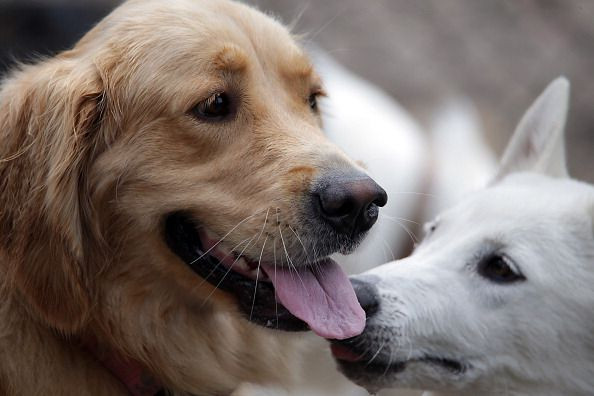Canine Flu Cases On The Rise; Authorities Advise Owners To Skip Dog Parks
KEY POINTS
- The illness is caused by a specific strain of the Type A influenza virus
- Infected pets may experience symptoms including, cough, runny nose, eye discharge, fever, lethargy and poor appetite
- Dog owners should get information from their veterinarians about the canine influenza vaccine
There has been an increase in the cases of canine flu being reported across the U.S.
In the D.C. region, particularly, many dogs are falling sick, prompting authorities to advise owners to avoid dog parks at least until the number of cases goes down.
"Dogs that do visit dog parks, doggy daycare or who are boarded when their owners are traveling are more at risk," the Montgomery County Office of Animal Services said in a statement, as per WTOP.
Canine flu is caused by a specific strain of the Type A influenza virus. It is "highly contagious" and can affect "almost all" dogs that are exposed to the influenza virus, according to the American Veterinary Medical Association.
Infected pets may experience symptoms including, cough, runny nose, eye discharge, fever, lethargy and poor appetite.
"The signs range in severity between no signs at all and severe illness, sometimes resulting in death," the animal services office added.
The disease spreads through direct contact, contaminated objects and even by people who come into contact with both infected and uninfected dogs. Fortunately, it's not known to infect people.
"Washing your hands, changing your clothes, and good hygiene remains simple but effective ways of limiting the spread of many infections, especially if you're regularly in contact with several animals," Jacqueline Boyd, senior lecturer in animal science at Nottingham Trent University, said, as per Inverse.
The county's animal services office further encouraged dog owners to get information from their veterinarians about the canine influenza vaccine.
"While the vaccine may not stop a dog from contracting the virus completely, it will lessen the severity and help reduce the spread," the outlet quoted it as saying.
Boyd also reminded that if an owner thinks their dog is sick, "it's best to speak to your vet first to ensure you get the correct diagnosis." Moreover, she said pet owners should "never be tempted to treat your pet with human medications."
A dog diagnosed with canine influenza should be quarantined from other animals for at least 28 days. Typically, dogs recover from it in two or three weeks, though some might develop secondary infections.
There are some general tips that pet owners can follow to ensure that their dogs are less likely to catch the flu or other diseases.
"Keeping pets lean and at a healthy weight, feeding them a balanced diet and making sure they always have clean drinking water are also simple, effective measures of supporting pet health. Keeping their sleeping area and food and water bowls clean can also reduce disease risk further," Boyd said further.
Several dogs at Atlanta shelters have also tested positive for dog flu, according to an earlier report from CW69 Atlanta. Canine flu cases have been logged in Tennessee, South Carolina and Texas as well, the New York Times reported last month, citing experts.

© Copyright IBTimes 2025. All rights reserved.





















